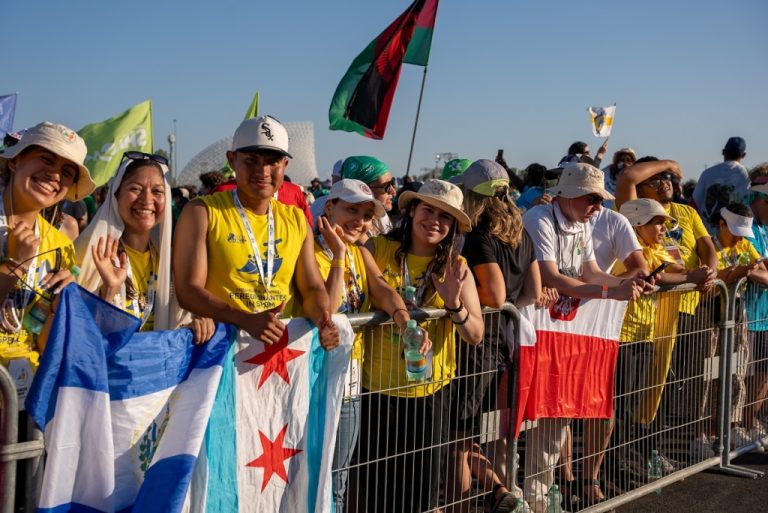
Bp Orestes Marengo SDB
On Thursday, 6 November 2025, during the Special Congress of Theological Consultors at the Congregation for the Causes of Saints, a unanimous positive opinion was given regarding the heroic exercise of virtues, the reputation for holiness and the signs of the Servant of God Oreste Marengo (1906-1998), Bishop of Tura, of the Society of St Francis de Sales, missionary in India.
The Positio super virtutibus, delivered on 31 May 2024, had as its Rapporteur Father Szczepan Tadeusz Praśkiewicz, OCD, as Postulator Fr Pierluigi Cameroni, SDB, and as Editor Dr Matteo Penati, Collaborator of the General Postulation. The nine Consultors were called upon to respond to the question concerning the heroic exercise of Christian virtues practised by the Servant of God, together with the reputation for holiness and signs. Based on this judgement, the Cardinals and Bishops, Members of the Dicastery, will subsequently be able to express their judgement.
This news has given rise to great joy both in Diano d’Alba (Cuneo), the birthplace of the Servant of God, and in the Diocese of Alba, where for some years a group of people has been dedicated to promoting the Cause of the Servant of God; and in North-East India, especially in the Diocese of Tura and the Salesian Province of Guwahati, India (ING).
‘In this Holy Year dedicated to Christian hope and in the 150th anniversary of the first Missionary Expedition desired by Don Bosco, the testimony of Bishop Oreste Marengo is that of a true pilgrim of hope who, animated by the apostolic zeal of the missionaries of the Gospel, proclaimed the Word of salvation. He was a bishop who brought hope, who taught people to trust in God, convinced that “all things work together for good for those who love God”,’ Fr Cameroni said.
Emilio Oreste Marengo was born on 29 August 1906 in Diano d’Alba (Cuneo). He lived in the hamlet of Le Cecche with his family, consisting of his father Lorenzo, his mother Agostina, and three brothers, one of whom, Giuseppe, would become a diocesan priest, while his sister Agnese would become a nun. They were a farming family, hard-working and deeply faithful. It was in Diano d’Alba that Oreste came into contact with some significant figures in the Salesian world, who led him, at the age of 13, to move to Turin to begin his Salesian life and meet the first generation of Salesians.
In 1923, he left Italy for India, more precisely the north-east, the region where he would live his entire missionary life. He was part of the first group of novices – eight from all over Europe – formed locally by the Salesians. His teacher was the Venerable Fr Stefano Ferrando. Already during their novitiate, and later during their philosophy studies, the young students went to the villages for the celebration of the Eucharist and to train catechumens and young local Catholic communities. This was followed by three years of theology, during which he met the Servant of God Fr Costantino Vendrame, a great teacher of apostolic life.
On 2 April 1932, Oreste Marengo was ordained a priest. He was then assigned to his first mission. Don Oreste spared no effort, and so, in 1936, only four years after his ordination, his superiors decided to protect him by appointing him Master of Novices in Woodcot and Bandel and, later, director of the philosophy studentate in Sonada. At the end of the Second World War, during which he was one of the few Italians not to be interned, he returned to a missionary centre.
In 1951, the Holy See decided to divide the territory of the diocese of Shillong and establish Dibrugarh as a bishopric. Fr Oreste Marengo was chosen as the first bishop and received his episcopal consecration in the Basilica of Mary Help of Christians in Turin on 27 December 1951. He was Bishop of Dibrugarh until 1964, when he was appointed to establish the new diocese of Tezpur, which he led from 1964 to 1969.
Despite considerable difficulties, the years in Dibrugarh and Tezpur saw the flourishing of new Catholic communities and the conversion of many pagans. He was then sent to Tura, first as Episcopal Vicar of the Bishop of Shillong, then as Apostolic Administrator, to start up the new diocese: within a few years, the number of missionary centres increased from 7 to 13. In 1978, he resigned as Apostolic Administrator when the first Indian Bishop of the Diocese was appointed.
Bishop Marengo made himself available to the priests of the diocese, helping them in their missions as assistant parish priest. After turning 70, he returned to being a simple missionary priest, continuing in this role as long as his strength allowed. He then retired to Bosco Mount, the Salesian pre-novitiate in Tura, becoming an example and a point of reference for the new Salesians. He died in Tura on 30 July 1998.
The only desire of his paternal heart was to be with people and bring them closer to God. He was truly a seeker of souls and a universal brother, especially for the youngest and poorest brothers and sisters: following Jesus and Don Bosco, Monsignor Marengo was able to love his neighbour and make him understand that he was loved in a unique way. And precisely because he wanted to be a brother to everyone, he learned numerous languages throughout his life so that everyone could receive the Good News in the best possible way. For him, the proclamation of the Gospel had to be addressed to everyone, and there should be no cultural or linguistic barriers to this proclamation.



